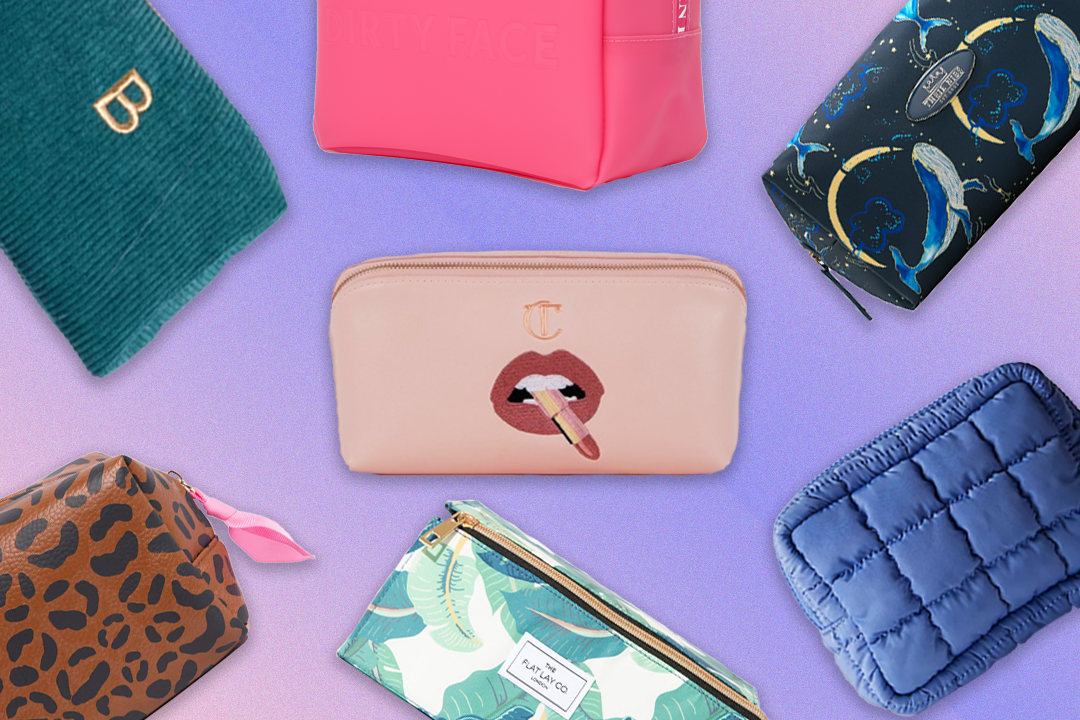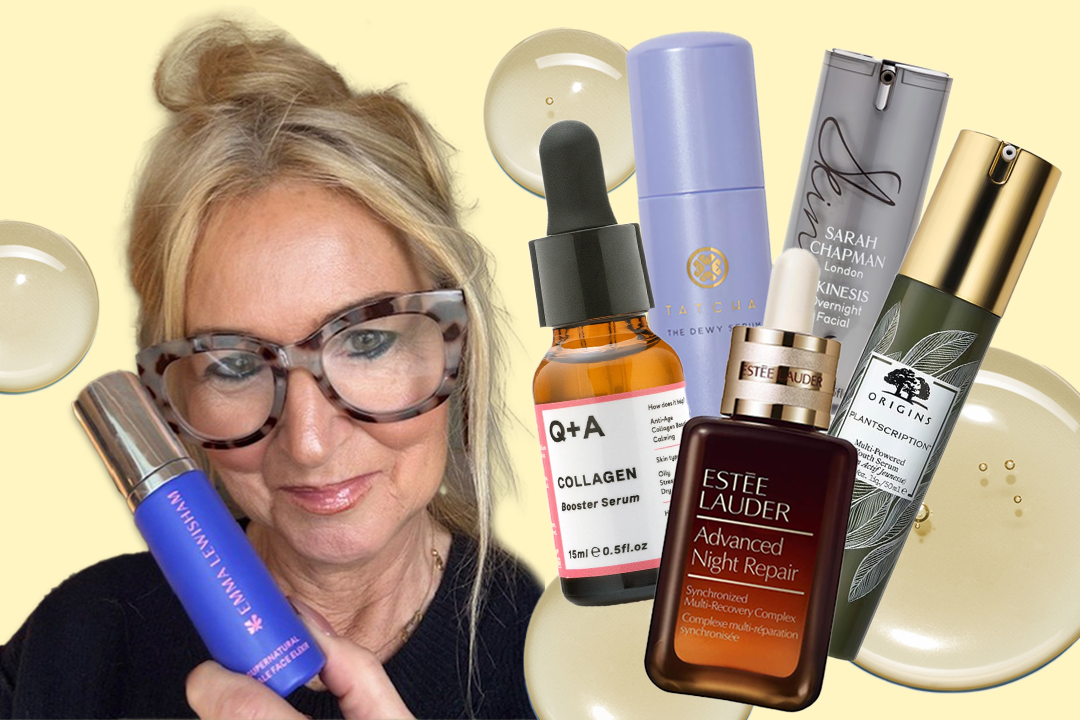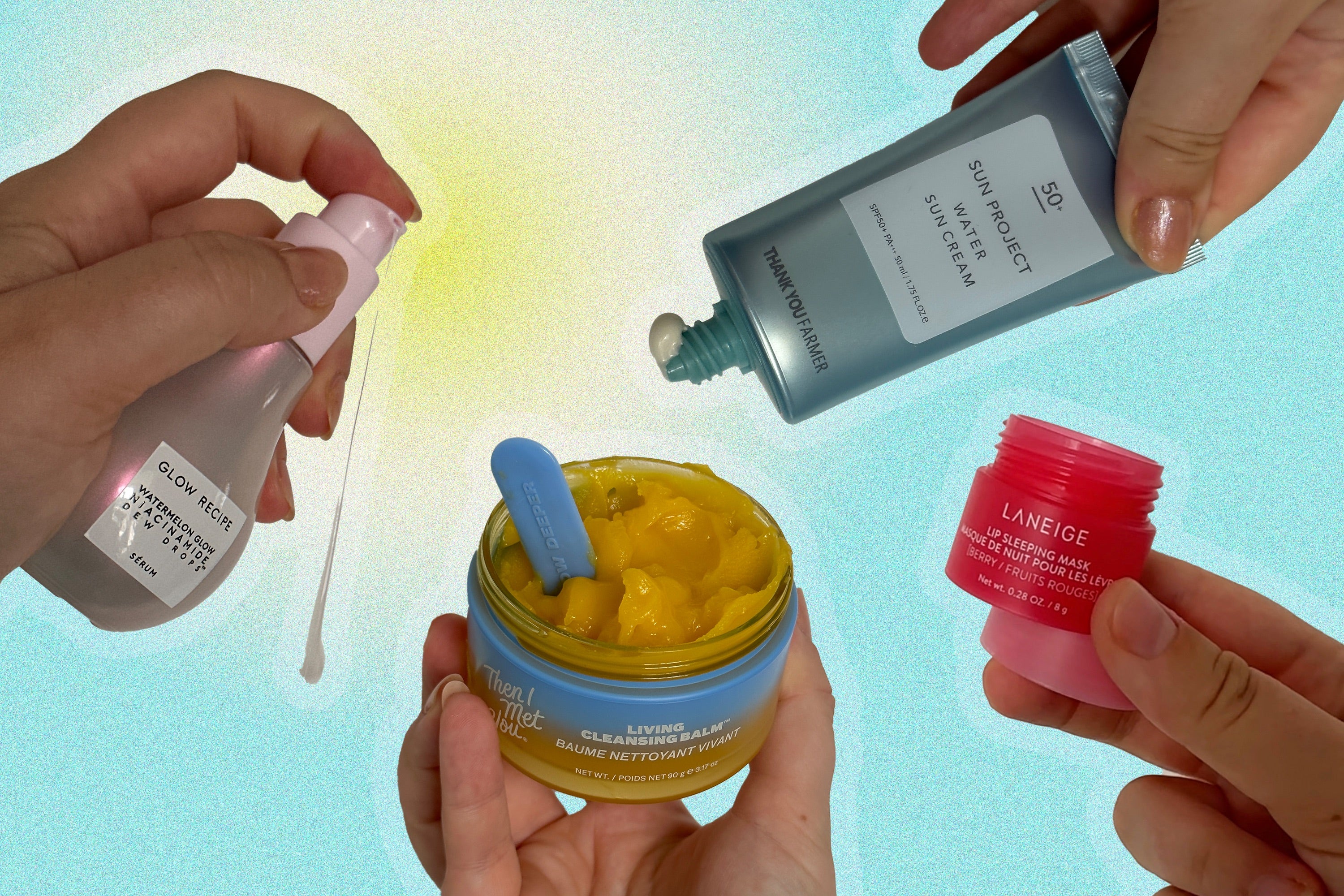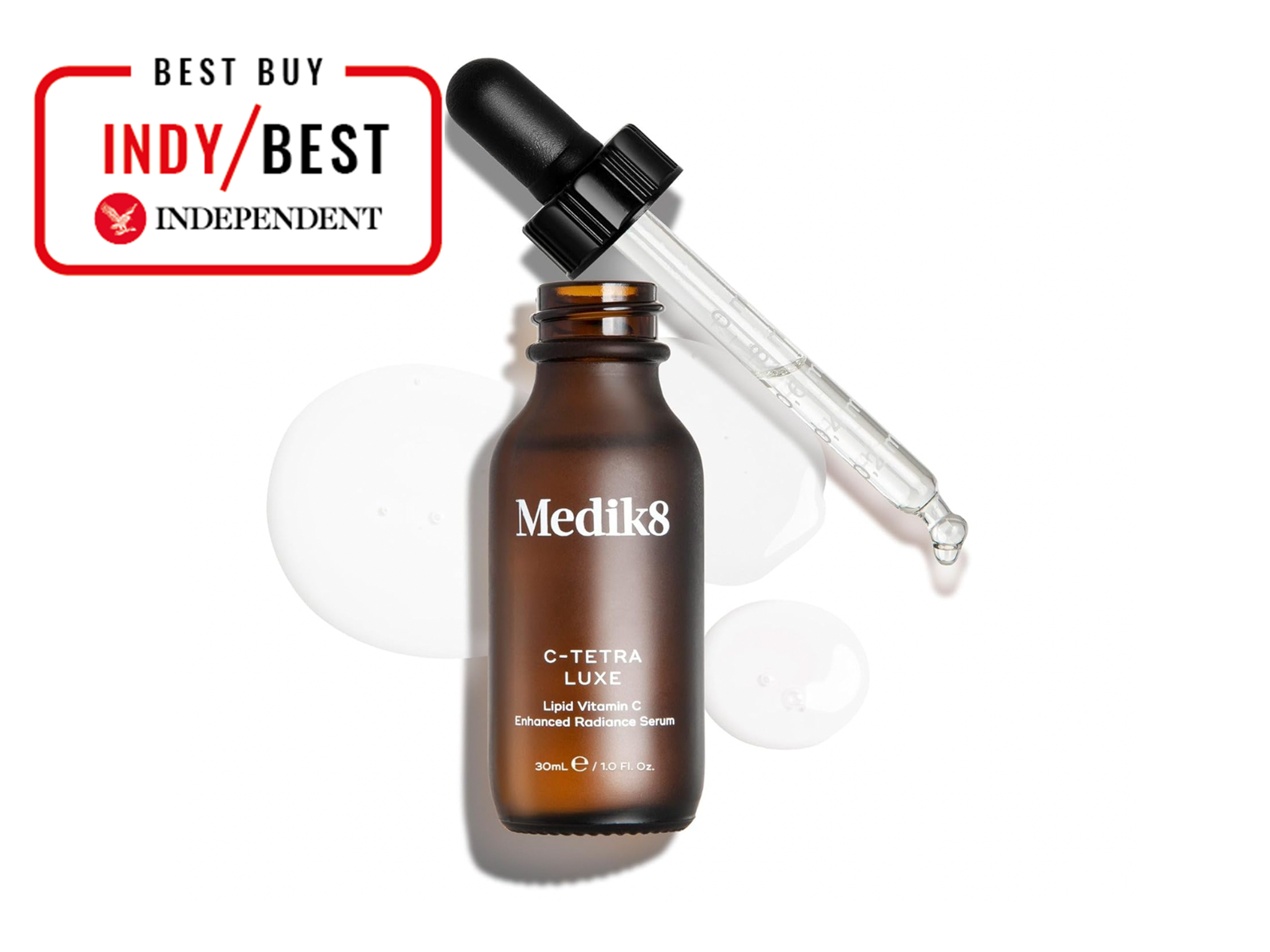
The Independent's journalism is supported by our readers. When you purchase through links on our site, we may earn commission. Why trust us?
13 best vitamin C serums for glowy skin, tested by a beauty expert
We’ve answered your burning questions regarding vitamin C and have tried and tested the best serums
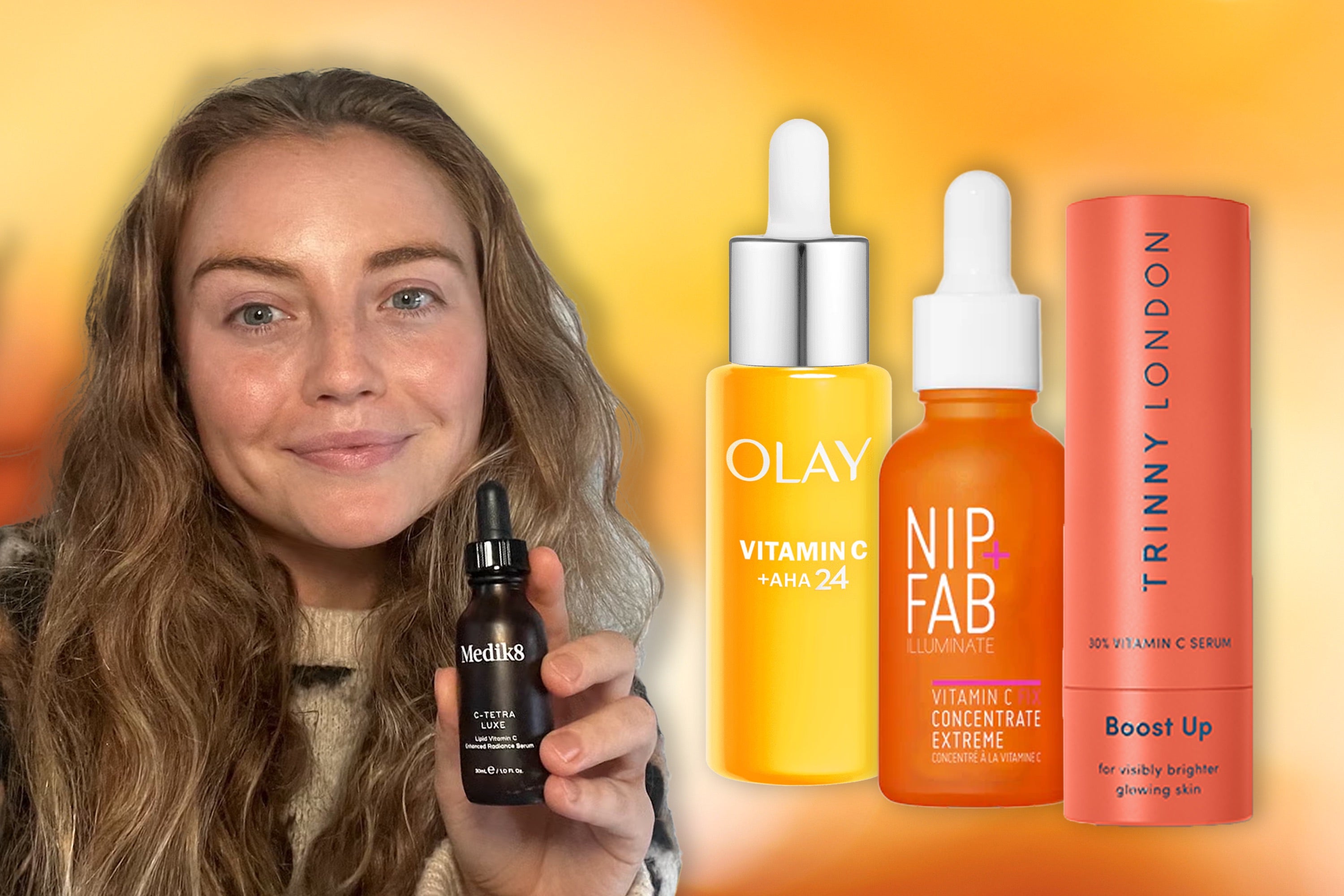

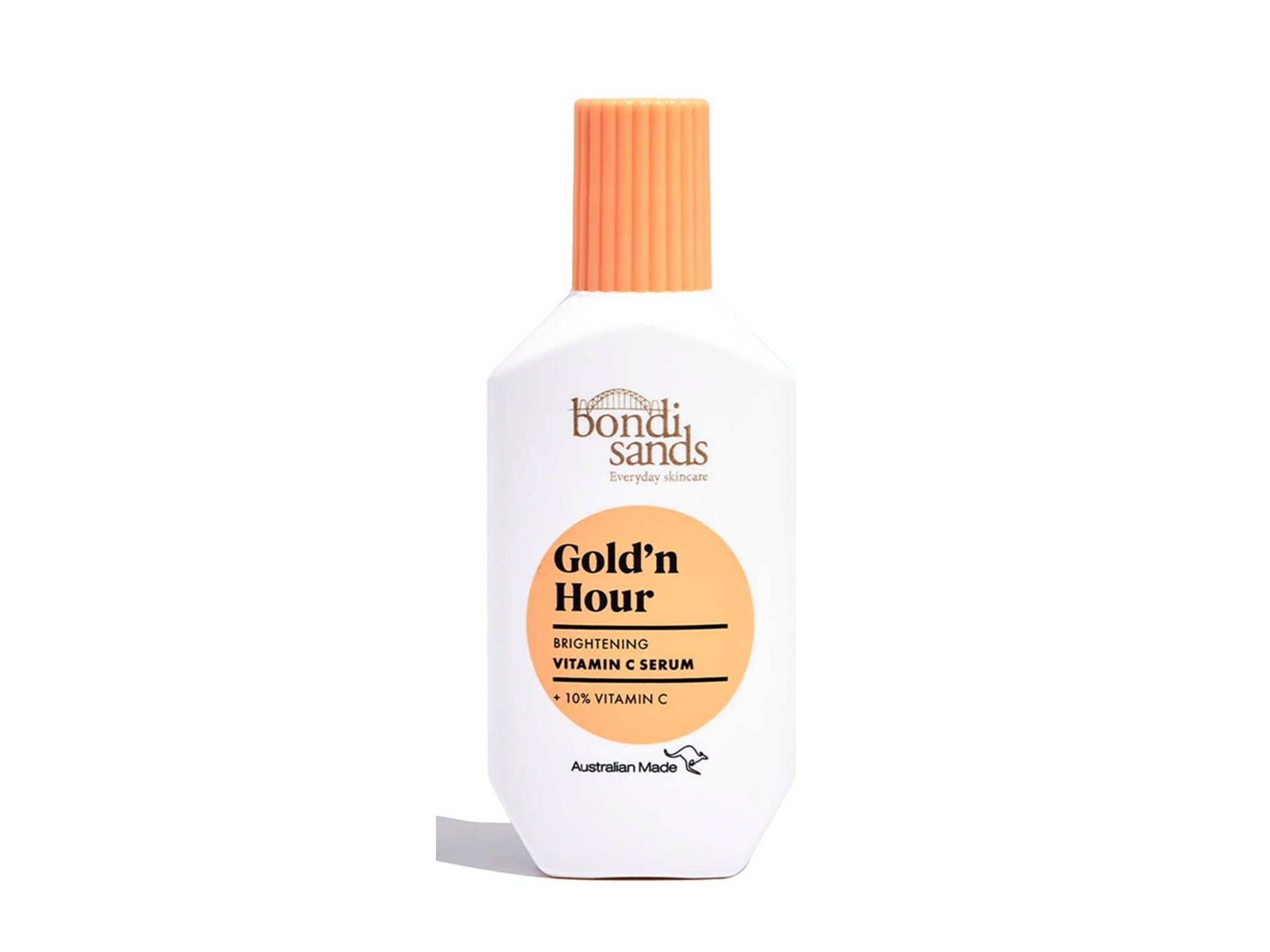
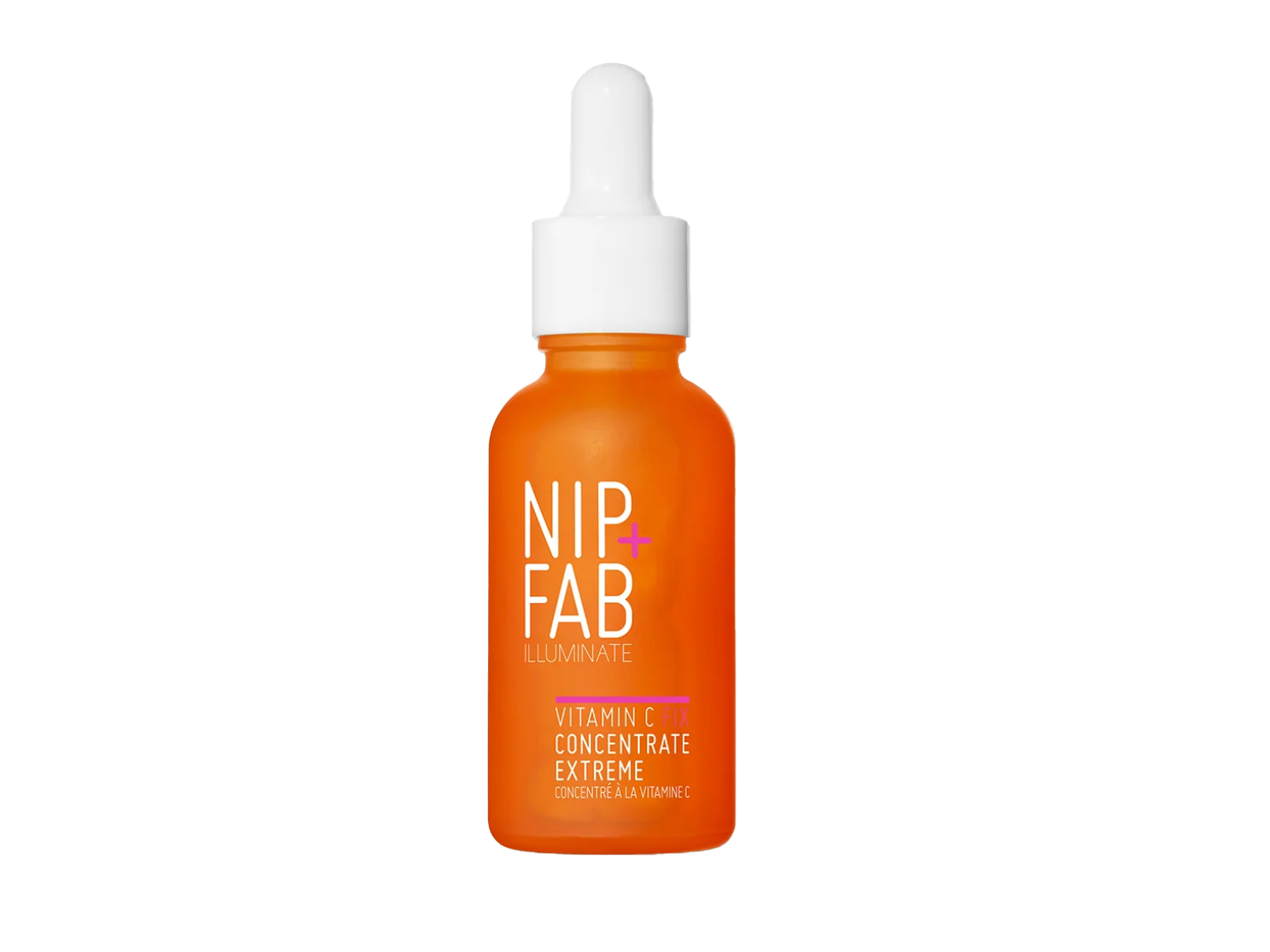
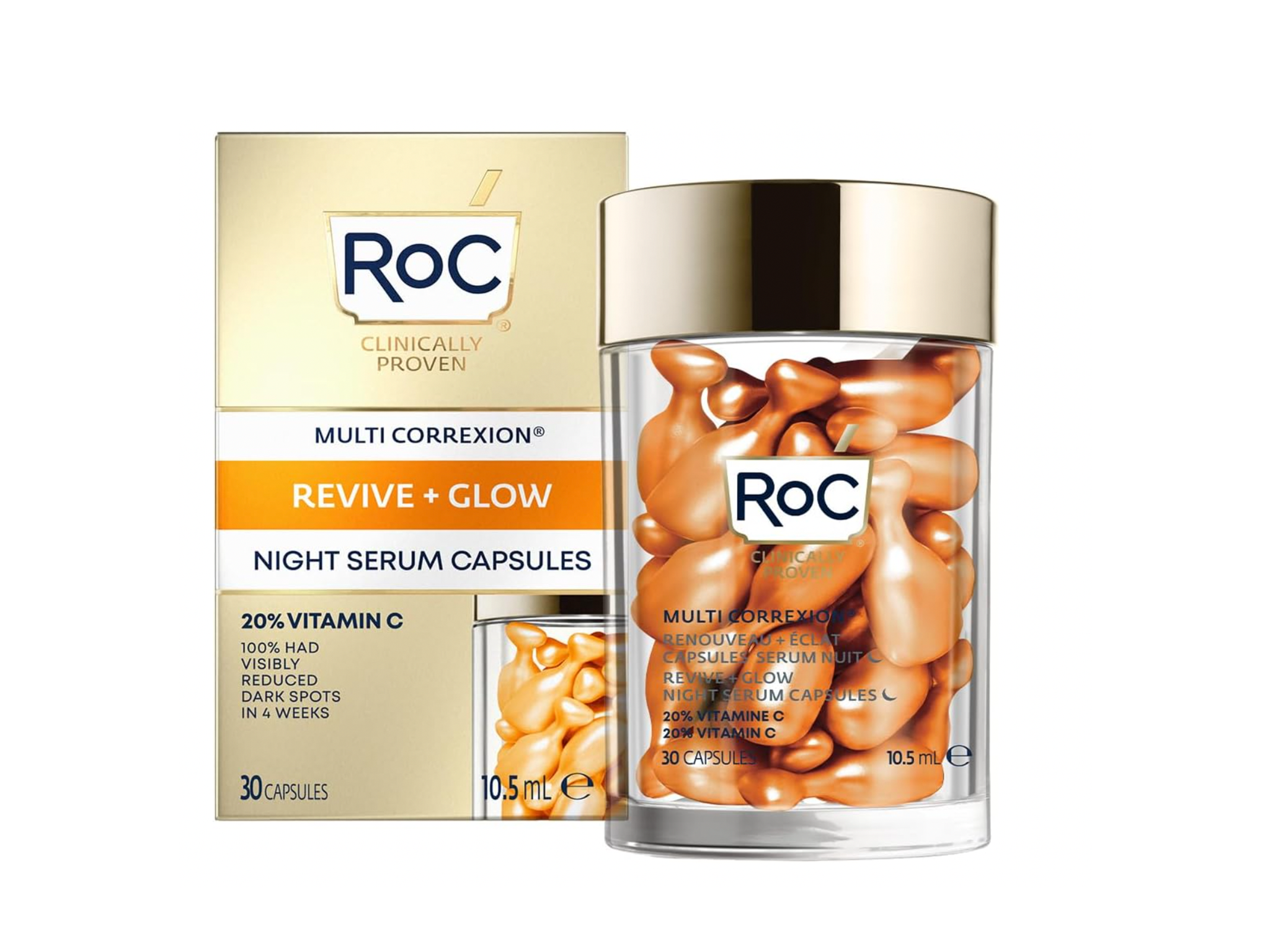
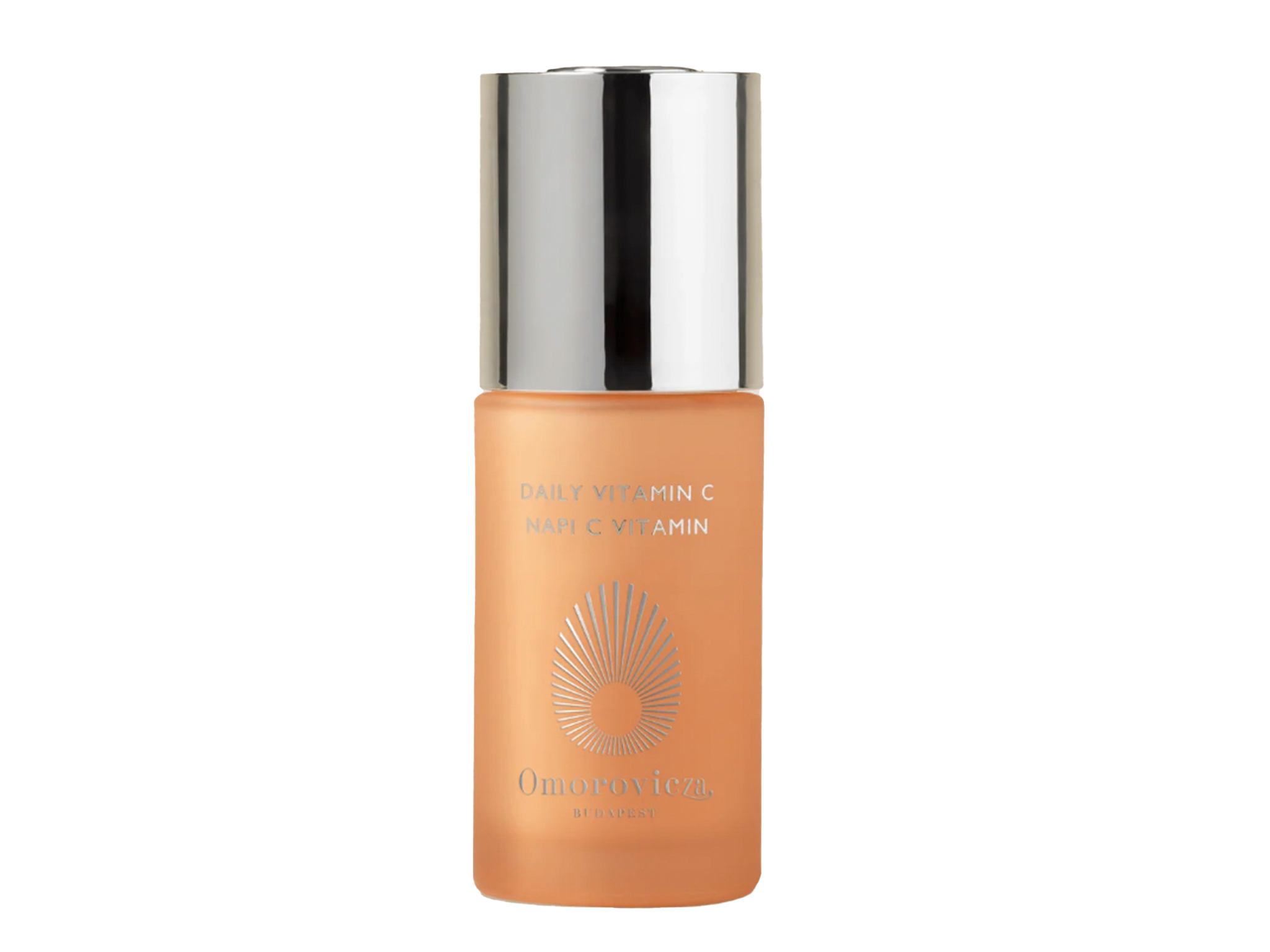
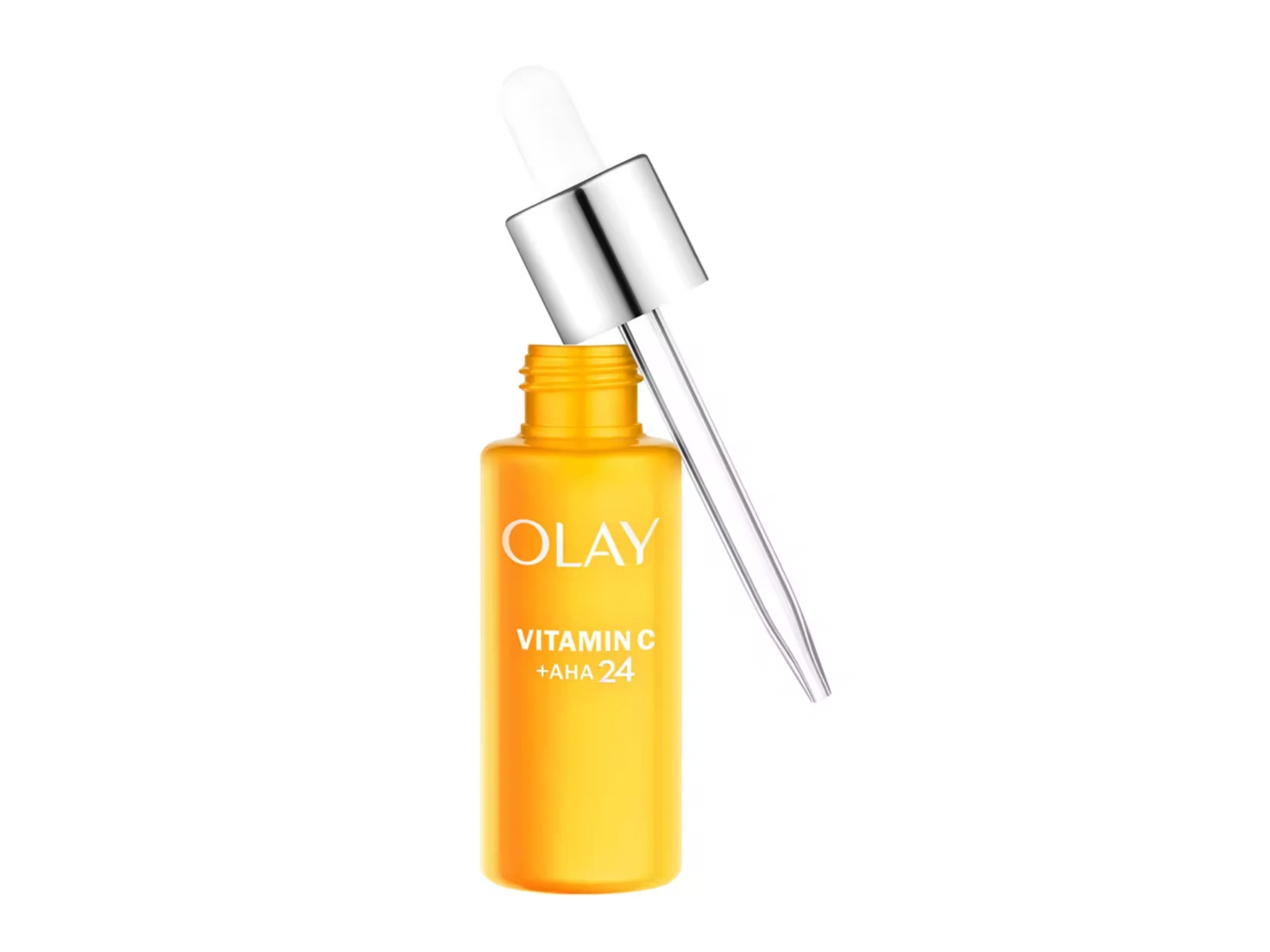
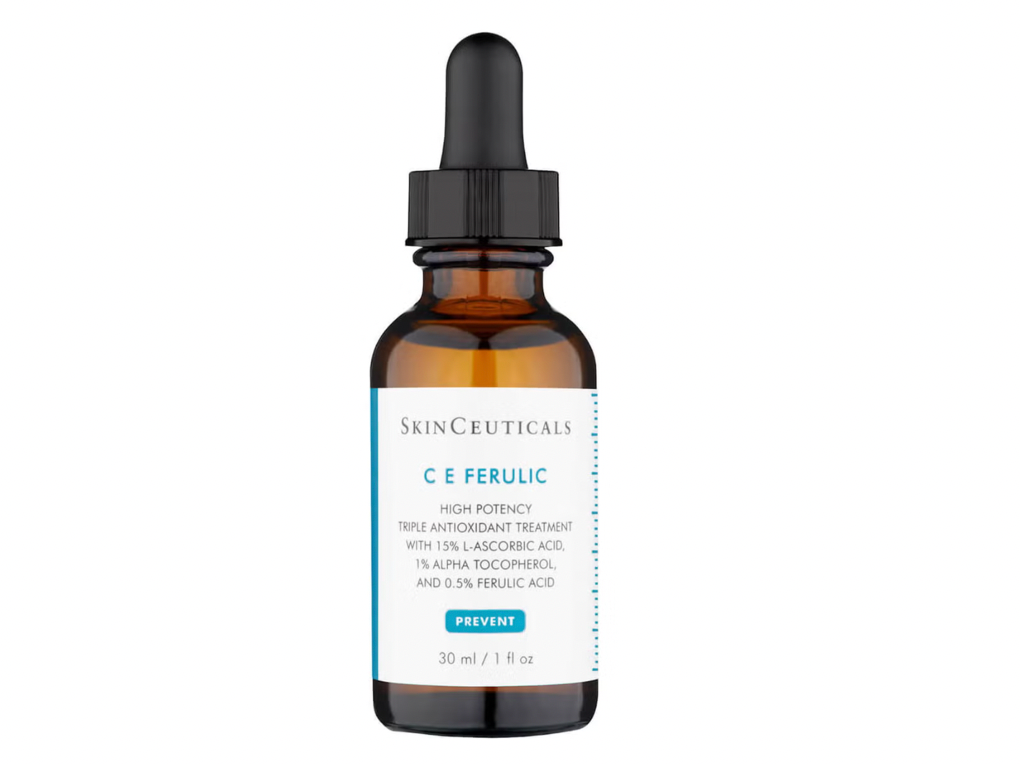 Best effective formulaSkinCeuticals C E ferulic antioxidant vitamin C serum for normal/dry skin Read review£134
Best effective formulaSkinCeuticals C E ferulic antioxidant vitamin C serum for normal/dry skin Read review£134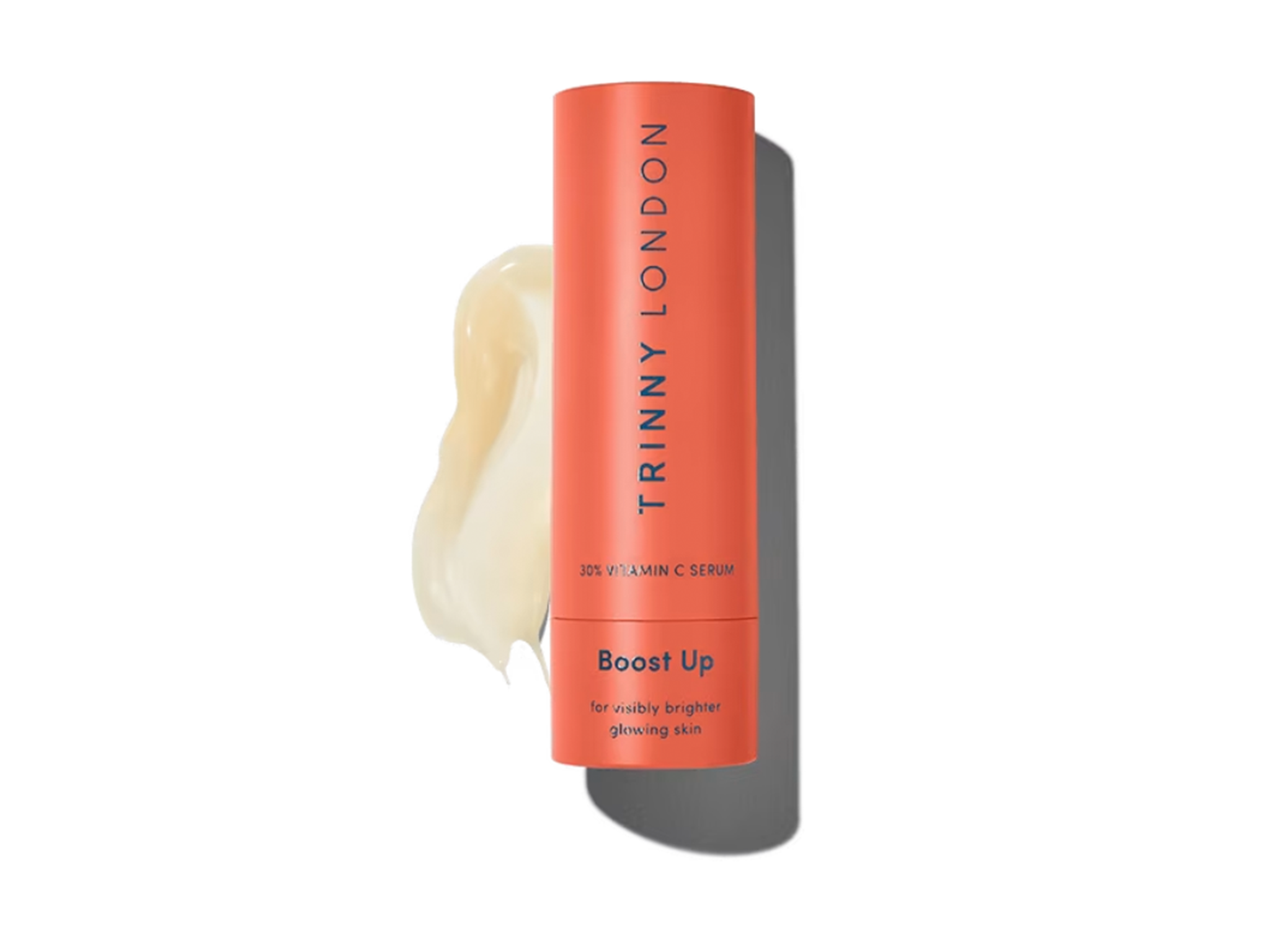
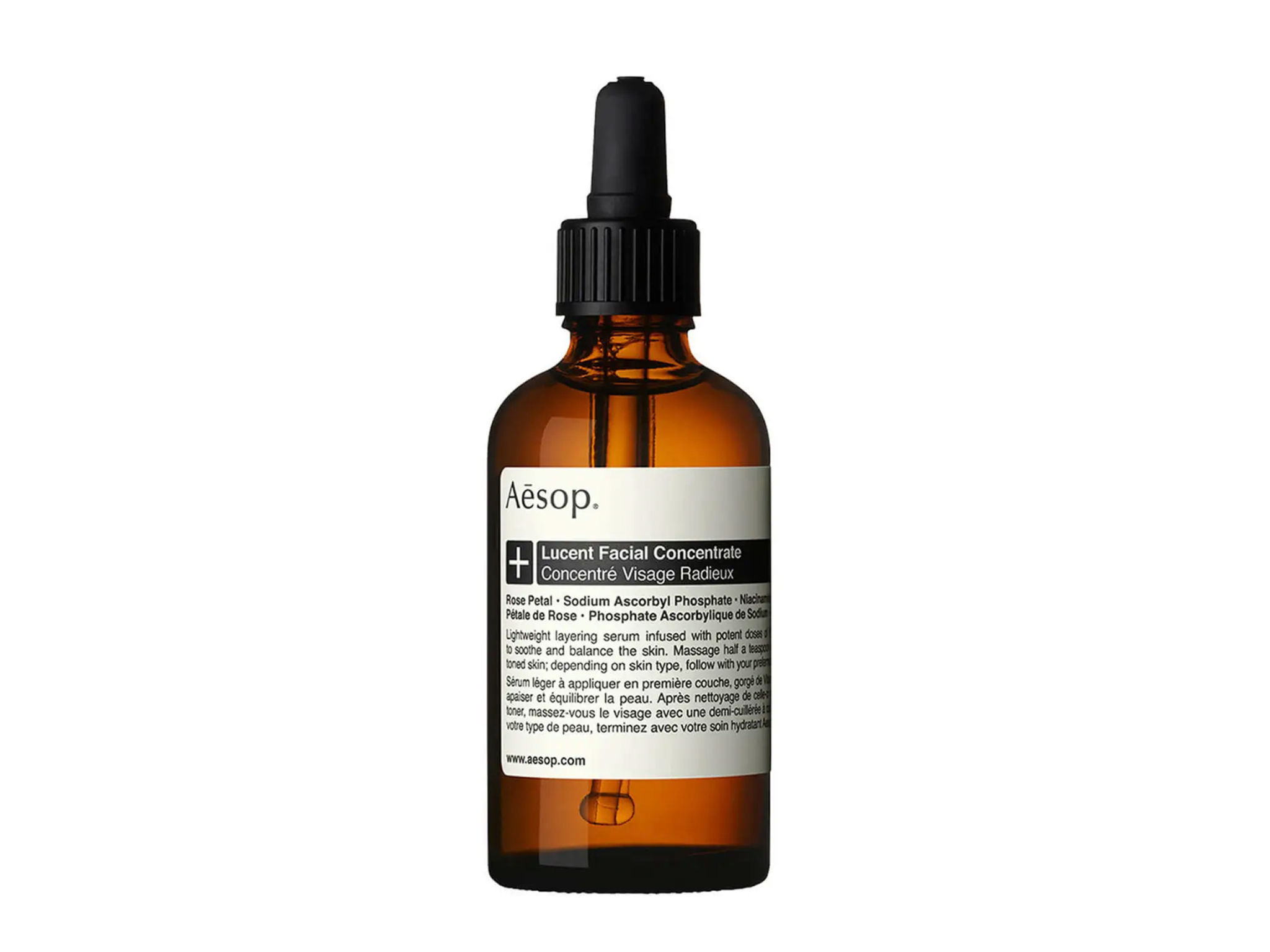
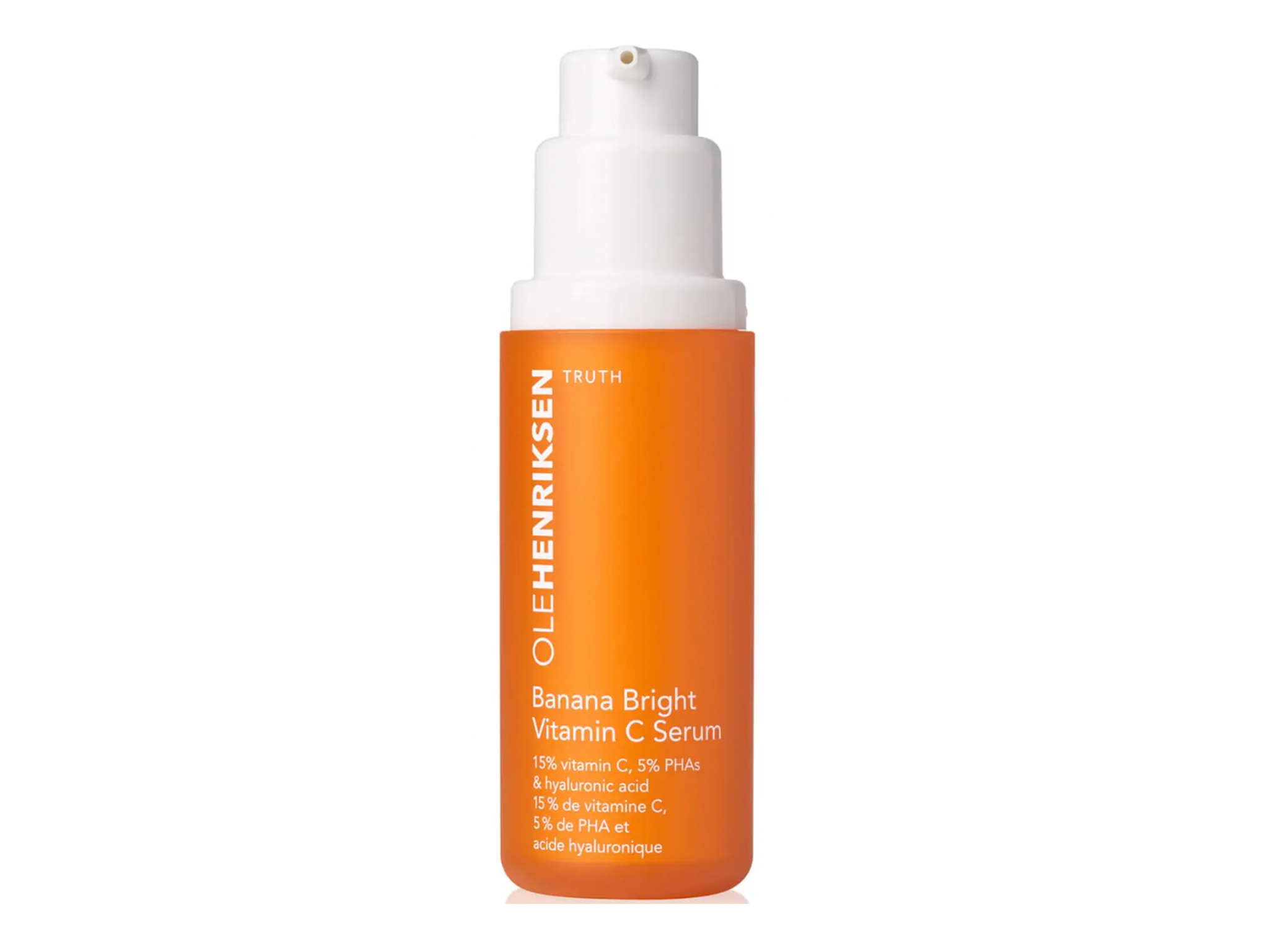
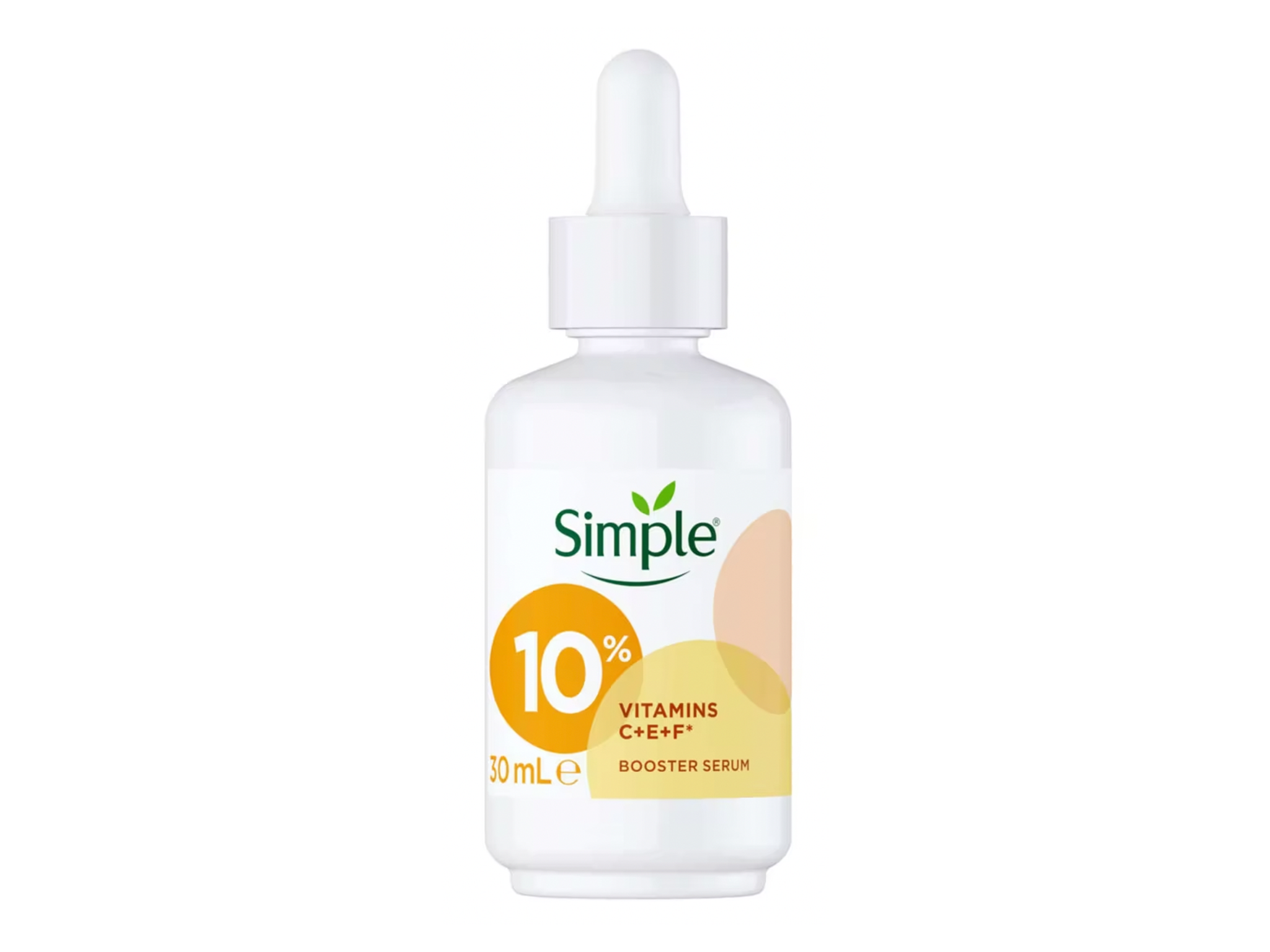
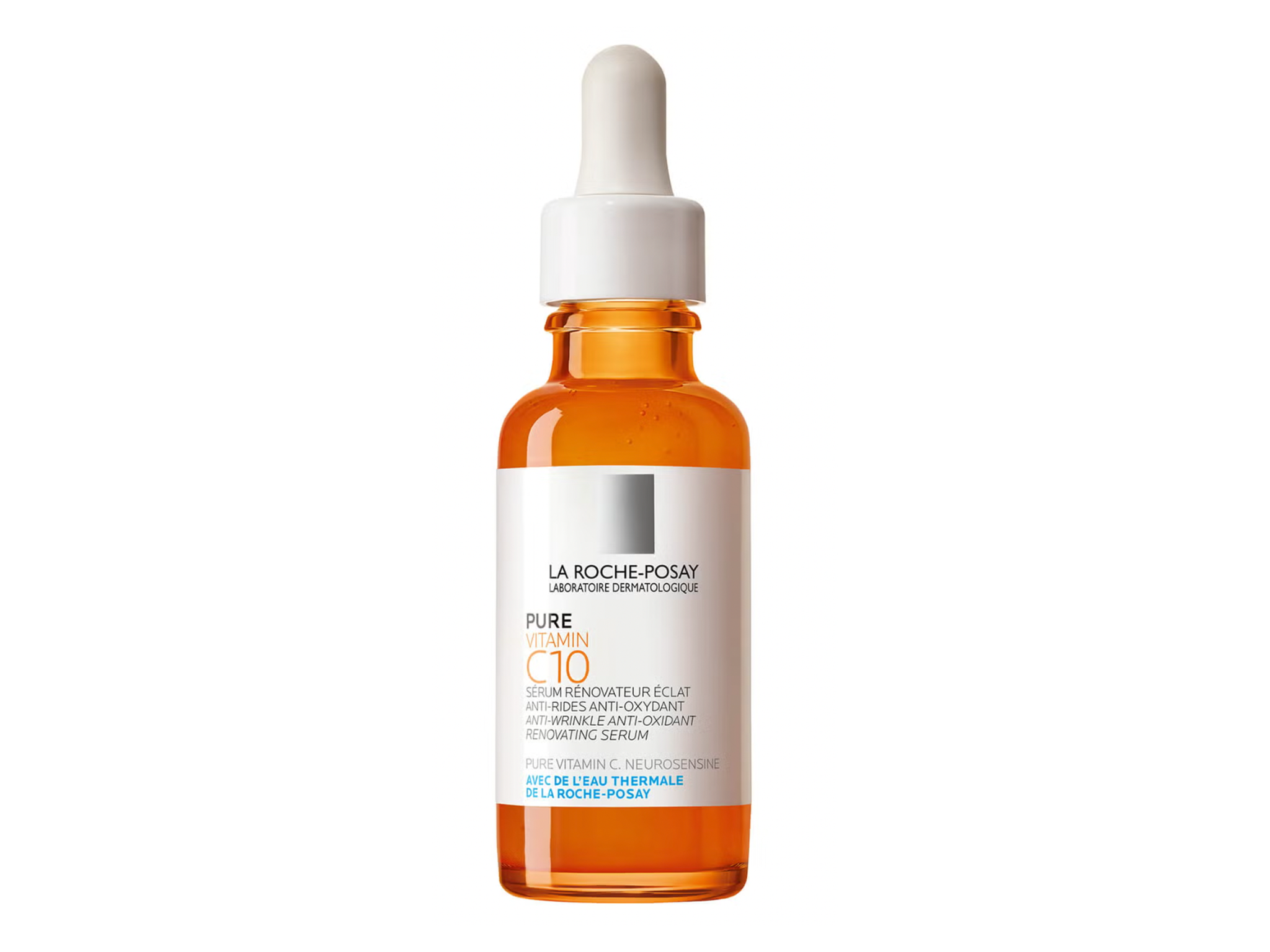
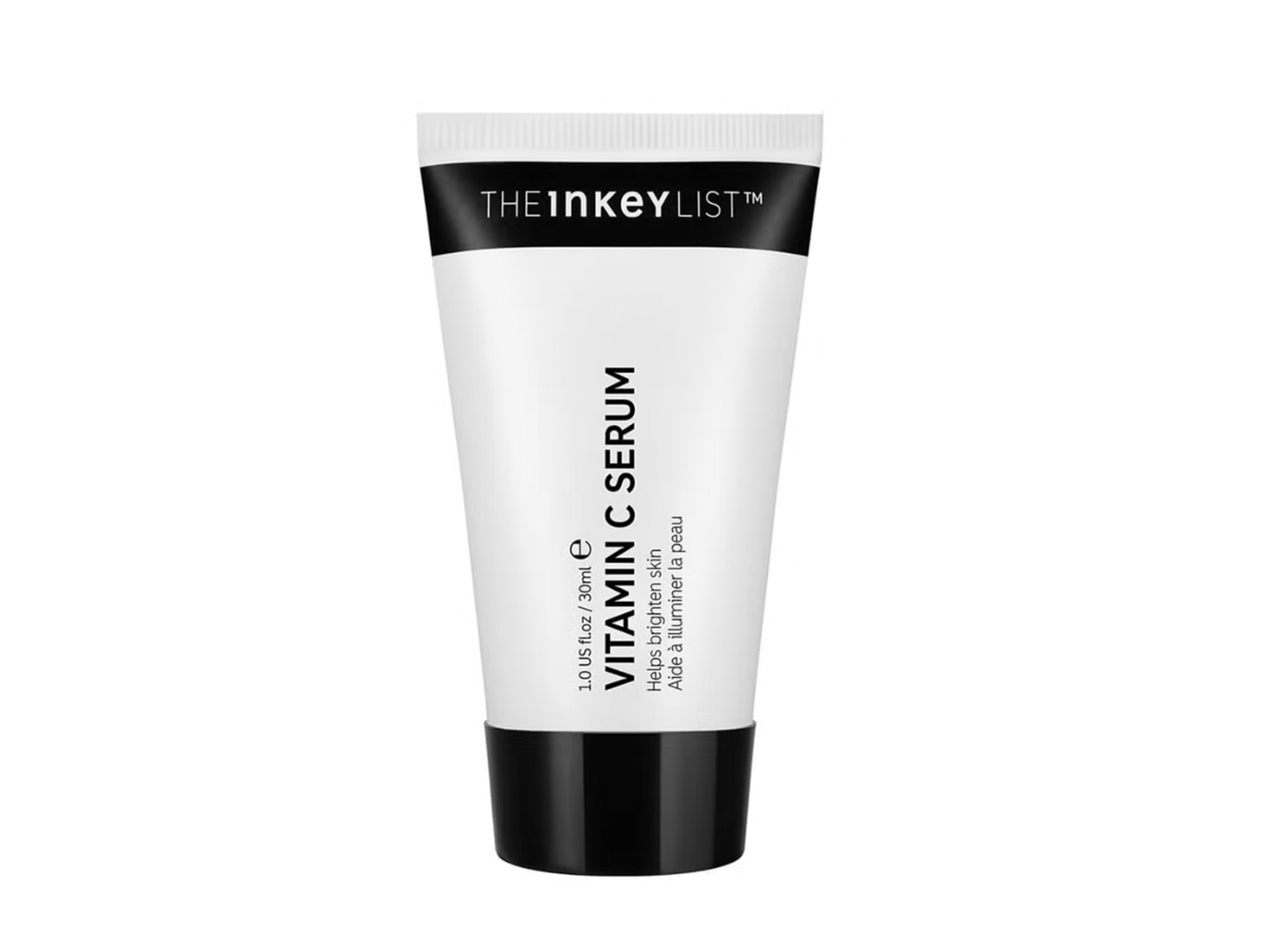
Vitamin C serums are among the most popular skincare products. From Olay to Omorovicza, every brand seems to be heralding their product as the secret to beautiful skin, so it’s hard to know how to cut through the noise. That’s where we come in: testing a sheer number of vitamin C serums to bring you the lowdown on the ones that are worth your money.
But what exactly are the benefits of these serums? Well, just as vitamin C can aid our immune system when consumed as part of our diet, it can also be applied topically, as it’s hailed for its skin health benefits, too.
Working as an antioxidant, neutralising free radicals from a variety of sources, including UV rays and pollution, vitamin C has been known to reduce wrinkles, help prevent sun damage, increase collagen production and reduce scarring and dark spots – which is quite an impressive list of benefits for a serum that can simply be applied topically to the skin each morning.
As with any product, not all vitamin C serums are made equal. So, from the concentration to the added ingredients, browse our review of the best vitamin C serums for all budgets.
How we tested
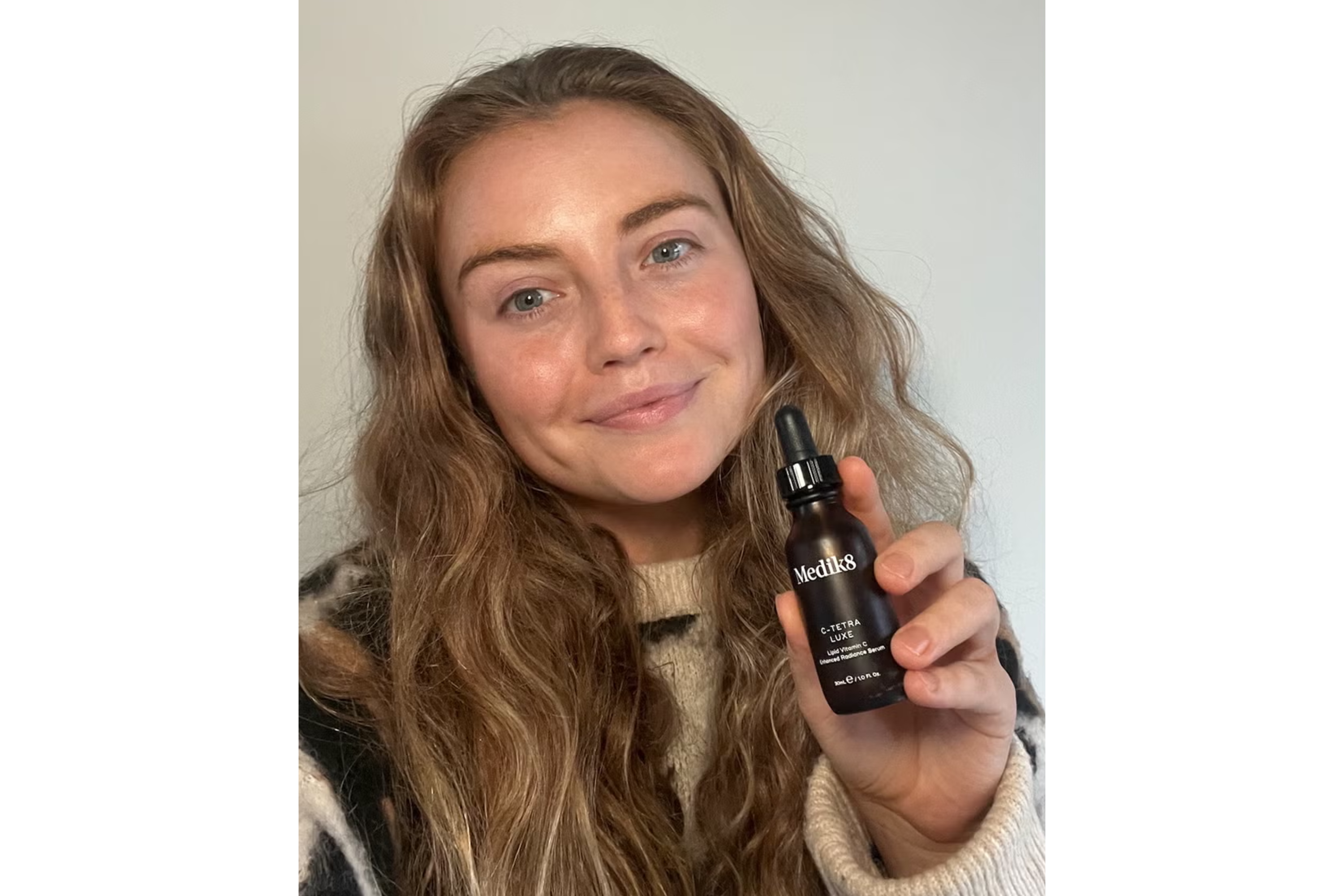
Over the course of many weeks, we corralled a huge number of vitamin C serums, from fan favourites to budget-friendly buys and even celebrity-approved products, to see which ones really are worth parting with your cash.
Applied every morning after cleansing and before moisturising, each vitamin C serum was tested on its ease of use, scent, feel, price point and, ultimately, the result seen on the skin. Most of the products come in a similar liquid state with a dropper pipette for easy application – simply apply three to four drops (or however many are recommended on the bottle) into the palm of the hand, rub your hands together and pat the formula onto your face.
For reference, our tester has pale Caucasian skin, which is clear with the occasional hormonal acne breakout. Fine lines can be seen across the forehead and eye edges, and there’s slight redness across the cheeks, chin and nose. They were avid vitamin C users before embarking on this experiment, attributing the product as a core element aiding their skin clarity and vibrancy. Here’s which ones they’d recommend.
Why you can trust
Lauren Cunningham is a time-earned beauty expert with experience testing everything from hyaluronic acids to SPF moisturisers. When it comes to vitamin C serums, she knows her skin in and out – a.k.a. she can spot when a formula is or isn’t working for her. But she’s also researched the formulas in great detail and consulted experts on what makes a great serum.
The best vitamin C serums for 2024 are:
- Best overall – Medik8 C-tetra luxe: £31.29, Amazon.co.uk
- Best budget buy – Bondi Sands gold’n hour vitamin C serum: £9.99, Amazon.co.uk
- Best scent – Nip + Fab vitamin C fix concentrate extreme: £18.71, Amazon.co.uk
- Best for dark spots – Olay vitamin C + AHA24 day gel serum for bright and even tone: £38, Boots.com
- Best brightening serum – Ole Henriksen banana bright vitamin C serum: £58, Boots.com
Medik8 C-tetra luxe

- Best: Overall
- Size: 30ml
- Scented: Yes
- Key ingredients: 14% stabilised vitamin C, squalane, vitamin E, maracuja, optimised red ginseng
- Why we love it
- Impressive ingredients list
- Visible results
The instructions for this serum call for six drops to be massaged over the face and neck, but our tester found around three or four actually worked perfectly and, of course, made the product last a bit longer. When applying, the soft citrusy smell is a great morning wake-up scent, while the silky feel is instantly luxurious and very easy to apply, thanks to a precise small pipette.
The brand revolves around a CSA strategy – vitamin C, sunscreen by day and vitamin A by night – emphasising just how core an element vitamin C plays within the brand ethos and skincare in general. The catchily named, tetrahexyldecyl ascorbate (THD) is the vitamin C of choice for this serum, meaning it’s gentler on the skin, easier to store and more stable in formulation.
While squalane, vitamin E, F, maracuja oil and red ginseng are also included for a deeply moisturising treatment helping to protect the skin barrier, stimulate collagen production and nourish cells. For anyone who wants to strip their skincare routine back even further, the brand’s two-in-one moisturiser vitamin C cream was also loved by our tester.
Bondi Sands gold’n hour vitamin C serum

- Best: Budget buy
- Size: 30ml
- Scented: No
- Key ingredients: Kakadu plum fruit extract, licorice root extract, glycerin, grape seed oil, carrot root extract
- Why we love it
- Bargain price
- Take note
- Spoils quickly
Working as a sun protection agent when combined with SPF, it’s unsurprising that sun expert Bondi Sands has brought out its own vitamin C serum. With 10 per cent ascorbic acid and a touch of vitamin C-filled kakadu plum fruit extract, this is a great option for beginners. Easy to use, simply drop three to four drops into the palms and massage into the skin post-cleansing and before moisturising and it’s an extra skincare step that won’t take more than a few seconds.
Licorice root extract has been added to help reduce inflammation along with microcitrus Australasica fruit extract for exfoliation, giving it extra skin-enhancing properties. But, being an active form of vitamin C, it did spoil, turn bright yellow and smell rancid after around three weeks of being open – which could’ve been user error of not tightening the lid enough, or could be a downfall of the unstable ascorbic acid type.
Nip + Fab vitamin C fix concentrate extreme

- Best: Smelling serum
- Size : 30ml
- Scented : Yes
- Key ingredients: 15% vitamin C complex, niacinamide, allantoin, sunflower seed oil
- Why we love it
- Strong orange scent
- Absorbs instantly into the skin
With a 15 per cent vitamin C complex, this Nip + Fab formula is best for those well-versed with the ingredient already. Blending three stable forms of vitamin C together, it’s designed to help you reap the full rewards of the brightening, wrinkle-reducing and sun damage reversal properties without too much worry of the product spoiling. Ferulic acid is also included to help make the vitamin C work even harder, alongside allantoin and niacinamide, which will help boost the skin barrier.
Our tester found the orange-scented product quite a delight to use. Not only does it smell like the ingredient itself (obviously this is a downside for those who don’t favour fragranced products), but it instantly absorbs into the skin with no sticky or slimy residue and it left our skin feeling hydrated, too.
RoC multi correxion revive and glow capsules

- Best: Capsules
- Size: 30 capsules
- Scented: N/A
- Key ingredients: Ascorbic acid, rubus idaeus leaf cell culture, kakadu plum fruit extract, glycerin
- Why we love it
- Easy to use
- Moisturising
We’ve emphasised how difficult it can be to store certain vitamin C serums already and even had a real-life example of just how easy they can be to spoil with Bondi Sands. So, coming in capsule form, this RoC option is one of our favourites for fuss-free, easy use whether at home or on the go.
With 20 per cent ascorbic acid, it’s on the higher end of concentration and luckily the capsule has already dictated the exact amount needed, meaning there’s no need to worry about overdoing it and causing irritation. Although, in saying that, beginners would be better suited to lower levels before moving on to this.
Dimethicone is the main ingredient, an intense moisturising ingredient known to help with conditions such as eczema, so it is intensely hydrating too. While rubus idaeus leaf cell cultures hydrate and work to reduce signs of ageing, polygonum aviculare extract helps protect against UV and infrared rays, and terminalia ferdinandiana soothes inflammation. Fine lines were notably reduced, skin felt hydrated, and it instantly absorbed with no greasy residue. For well-versed vitamin C users looking for a change, this is one to go for.
Omorovicza daily vitamin C

- Best: Luxury serum
- Size: 30ml
- Scented: Yes
- Key ingredients : Sodium ascorbyl phosphate, niacinamide, hyaluronic acid
- Why we love it
- Impressive ingredients list
- Take note
- Expensive
Luxury skincare lovers rejoice, as of course we’ve included Omorovicza in this round-up, how could we not? Firstly, we have to note that it is quite the expense. The Hungarian brand prides itself on its ingredients, history, results and science-led design, so our tester was more than excited to give this vitamin C serum a whirl.
Using sodium ascorbyl phosphate as the form of vitamin C – the same structure as used in the Aesop version – it’s again very stable with no chance of oxidisation, a huge relief when spending over £100. The main ingredient is water – which seems like quite a shame when considering the price – but it’s not just any water, it’s Hungarian thermal water, which is said to have impressive healing properties and a high mineral concentration. Niacinamide, nasturtium officinale flower/leaf extract, radish root ferment filtrate and actinidia arguta fruit extract work to nourish and protect the skin while keeping it clear and free from acne-inducing bacteria.
So, packed with skin-boosting ingredients and with a boujee bottle to match, we can see where the price point comes in. But, if you do have the money to spend then definitely give it a go – one drop was enough to cover our entire face so it’s sure to last you a very long time.
Olay vitamin C + AHA 24 day gel serum for bright and even tone

- Best: For dark spots
- Size: 40ml
- Scented: Yes
- Key ingredients: 3-O-ethyl ascorbic acid, glycerin, niacinamide, dimethicone, lactic acid
- Why we love it
- Reduces dark spots
- Take note
- Slightly sticky
Olay has been backing its vitamin C range for a while now with Amelia Dimoldenberg, aka host of Chicken Shop Date, as the face of it. But, it takes more than a celeb face to sway us here at IndyBest so we put this product through its paces, just like the others, to see if it really is worth parting the cash for.
The first thing to note is the scent, a fresh citrus banana whiff that reminded us of that yellow medicine as kids – both a good and a bad thing. The pipette is very easy to use, and only a few drops cover the whole face. Do note this product is cloudy, so don’t be thinking it has spoiled if the scent is still intact.
It was slightly sticky compared to other options but did absorb into the skin quickly with long-lasting moisture. It’s the 3-O-ethyl ascorbic acid that is used here along with glycerin, niacinamide, dimethicone and lactic acid for a moisturising yet exfoliating treatment that can be used both morning and night, making it a great option for anyone looking to reduce dark spots and brighten skin.
SkinCeuticals C E ferulic antioxidant vitamin C serum for normal/dry skin

- Best: Effective formula
- Size : 30ml
- Scented: No
- Key ingredients: 15% vitamin C, ferulic acid, vitamin E, glycerin
- Why we love it
- Impressive ingredients list
- Take note
- Expensive
Ask almost any beauty buff what the best vitamin C serum is and it’s likely that they’ll say this SkinCeuticals option. Yes, it’s incredibly expensive (which is why we haven’t made it our best buy) and it can spoil quite quickly, but the results are incredibly impressive. Housing 15 per cent pure vitamin C, 0.5 per cent ferulic acid and one per cent vitamin E, it’s a pretty potent product that, only after a few weeks, visibly brightened, smoothed and boosted our skin. However, it doesn’t last too long as it’s prone to oxidise, so be sure to act swiftly applying each morning before it goes a funny colour and slightly tacky.
Trinny London boost up

- Best: For a high concentration
- Size: 30ml
- Scented: Yes
- Key ingredients: 30% 3-O-ethyl ascorbic acid, jojoba oil, olive oil, plankton extract, lemon peel ferment, lactococcus ferment, meadowfoam seed oil
- Why we love it
- Great for older skin
- Take note
- Only for those used to active ingredient
We know we’ve already said that 20 per cent is really the maximum recommended concentration of vitamin C when going by general consensus, but Trinny has blown everyone out of the water with this 30 per cent concentrate. Once again, 3-O-ethyl ascorbic acid is the vitamin C of choice and the main ingredient in this serum, meaning it is incredibly strong. But, even after a couple of weeks of use, we experienced no irritation, sensitivity or burning. Perhaps this could be due to the other potent and nourishing ingredients, jojoba oil, olive oil, plankton extract, lemon peel ferment, lactococcus ferment and meadowfoam seed oil.
As with the majority of the Trinny London range, this serum has been created with older skin in mind, so anyone in that category is sure to love this product. But, if new to vitamin C, be sure to train your skin for a couple of months beforehand with one or two of the lower concentrate options in this round-up first, just in case.
Our skin appeared brighter, smoother and more even in tone after continued use which is sure to increase as time goes on. And, best of all, it’s also refillable meaning less waste.
Aesop lucent facial concentrate

- Best: All-rounder
- Size: 60ml
- Scented: Yes
- Key ingredients: Sodium ascorbyl phosphate, niacinamide, hydrogenated castor oil, boswellia carterii oil, fusanus spicatus wood oil, rosa damascena flower oil
- Why we love it
- Impressive ingredients list
- Take note
- Expensive
Not strictly just a vitamin C serum, but marketed as such, the Aesop lucent facial concentrate is the brand’s take on a classic vitamin C product. In the classic aesthetic Aesop packaging, we loved having this sit pride of place on our bathroom shelf and the pipette was easy to use and large enough that just two drops covered most of the face and neck with the silky, instantly absorbing liquid.
Sodium ascorbyl phosphate is the vitamin C of choice here and being the most stable option it won’t oxidise, so there’s much less worry about spending this much money on a product that could quickly go off. Niacinamide, hydrogenated castor oil, boswellia carterii oil, fusanus spicatus wood oil and rosa damascena flower oil closely follow in the ingredient list providing a blend of moisturising, conditioning and nourishing ingredients that really are worth their weight in gold.
Vitamin-rich, any skin type will soak this up and look radiant with a glowy yet semi-matte finish our tester fell in love with.
Ole Henriksen banana bright vitamin C serum

- Best: For brightening
- Size: 30ml
- Scented: Yes
- Key ingredients: 15% 3-O-ethyl ascorbic acid, hyaluronic acid, orange peel oil, sunflower seed oil, glycerin, PHAs
- Why we love it
- Impressive ingredients list
- Take note
- Only use at night
Famous for its banana bright eye crème, Ole Henriksen is a beauty lover’s go-to for brighter eyes. And the main ingredient? Vitamin C. What many people don’t know is that the brand also has a pretty impressive vitamin C serum for the whole face, and that’s what we put to the test.
With 15 per cent vitamin C – stemming from 3-O-ethyl ascorbic acid – and five per cent polyhydroxy acids (PHA’s) stemming from fruit acids, this serum works to instantly brighten and boost skin for a fresh-faced glow. Hyaluronic acid is included for added moisture while banana powder-inspired pigments nourish the skin from the inside.
Our tester fell in love with the fresh citrusy scent and the silky feel of the product immediately. Although it feels a little heavy on the skin at first, it absorbs within around ten seconds with a semi-matte finish while feeling hydrating for hours afterwards. Do note, unlike most other options in this round-up that are best applied in the morning, due to the level of PHA exfoliants, this one is best to be used at night to avoid instant sun exposure.
Simple booster serum 10% vitamin C+E+F

- Best: For beginners
- Size: 30ml
- Scented: No
- Key ingredients: 2% vitamin C, vitamin E, vitamin F
- Why we love it
- Bargain buy
- Take note
- Very small concentration
Coming in at under £10, this Simple serum really is a great budget buy for an everyday essential. Incorporating vitamins C, E and F, it’s a bit of an all-rounder. But, if you’re now wondering why some of the other options in the round-up are considerably more expensive, let’s take a closer look.
Claiming to be ten per cent concentration of all of those vitamins, this product actually breaks down to include two per cent vitamin C, one per cent vitamin E and seven per cent vitamin F. So, while it still will provide some goodness to your skin, you’re unlikely to see many of the key vitamin C benefits occur anytime soon if solely using this. The vitamin C used is again sodium ascorbyl phosphate, making it very stable, and aside from water the other hero ingredient is cannabis sativa seed oil, bringing in the moisturising properties of vitamin F.
While it felt instantly cooling on the skin with a milky-looking odourless formula, we would only recommend this to those at the very beginning of their skincare journey rather than beauty buffs looking for serious results.
La Roche-Posay pure vitamin C10 serum for sensitive skin

- Best: For sensitive skin
- Size: 30ml
- Scented: Yes
- Key ingredients: 10% ascorbic acid, salicylic acid, hydrolysed hyaluronic acid
- Why we love it
- Formulated for sensitive skin
- Take note
- A bit tricky to use
La Roche-Posay is quickly becoming one of our skincare favourites with a huge range of affordable products that do exactly what they say on the tin. If it’s growing on you too, you may want to add this vitamin C serum to your basket. Combining 10 per cent ascorbic acid, salicylic acid and hydrolysed hyaluronic acid, it’s built to reduce signs of ageing – tackling fine lines and wrinkles and plumping skin with moisture.
The pipette wasn’t our favourite and is a bit tricky to get the liquid drawn up into it, but the light citrusy scent, weightless feel and instant absorbency of the serum had our tester reaching for this over and over again.
The Inkey List vitamin C serum

- Best: For dry skin
- Size: 30ml
- Scented: No
- Key ingredients: 30% ascorbic acid, dimethicone, ascorbic acid, polysilicone-11, peg-10 dimethicone
- Why we love it
- Great price
With 30 per cent pure L-ascorbic acid, The Inkey List’s vitamin C serum is pretty powerful stuff, despite it’s bargain price point. In fact, we’re still trying to work out how it’s so affordable considering the impressive vitamin C concentration. Only four ingredients are included – dimethicone, ascorbic acid, polysilicone-11, peg-10 dimethicone – making it quite the simple formula.
As dimethicone is the core ingredient, it’s also quite moisturising as well, making it a great option for those why dry skin, which our tester just loved. Although, as it’s a squeezy bottle, we did find it tricky to control the amount that comes out, so remember slow and steady is always safest. After a month of use, we’re sure our skin is looking a little brighter and plumper, too, so we have to give it full marks.
Are there different types of vitamin C in skincare?
There are a few different varieties of vitamin C within skincare – L-ascorbic acid (or just ascorbic acid) is the most common and works well for oily or normal skin but has been dubbed as too harsh on sensitive skin. It’s also the most biologically active, meaning it is the most beneficial. For more sensitive skin, other variations including sodium ascorbyl phosphate and tetrahexyldecyl ascorbate (THD) are seen to be great alternatives that are often less irritating.
Who should be using vitamin C serums?
Any skin type is sure to benefit from regularly using a vitamin C serum unless you have an allergy to triethanolamine. Anyone with sensitive skin or those using vitamin C for the first time should start with a low concentration (less than 10 per cent) or combine it with a moisturiser for a gentler application. Alternatively, opt for a moisturiser that also includes vitamin C.
What does the concentration of vitamin C mean?
Similar to alcohol, vitamin C serums will have a percentage concentration of either L-ascorbic acid or other types of vitamin C. Ideally, you want to start off at 10 per cent or under and ease your way up the scale to see what works best with your skin.
The general consensus is that anything above 20 per cent is too potent and can lead to irritation without increasing any skincare benefits.
How to store vitamin C serums?
The general rule of thumb is to store Vitamin C serums in a cool, dry place with the lid tightly sealed. If you notice a rancid smell or the colour of the product changes to a deep yellow, dark or cloudy colour, it may have already oxidised and not be suitable for use.
Which other ingredients make for a great vitamin C serum?
Due to the often unstable nature of vitamin C serums, other antioxidants and vitamins are often included to help balance the products and provide additional benefits. Core ingredients include vitamin E and ferulic acid to protect against cell damage, reduce inflammation and brighten skin tone.
The verdict: Vitamin C serums
We may have given you a bit of information overload with this round-up, and we really only scratched the surface with the scientific side of vitamin C and the skin. But, if you take just two things away please make it these: almost any vitamin C serum will benefit your skin (as long as it hasn’t spoiled) but if starting from scratch please be sure to opt for a lower concentration first and do some reading around how it will react with products already in your skincare routine.
While we loved each and every one of these options, Medik8 beat the others to the mark when looking at its rich ingredient list, price point and ease of use with just sunscreen and vitamin A. We do however wish the brand – and many others – would disclose exactly what concentrate of vitamin C is used just to give an idea of strength.
For anyone on a tighter budget, Simple, Bondi Sands and The Inkey List are all a great place to start for any bargain beauty buys. Meanwhile, for any big spenders, Omorovicza or Aesop are the ones to go for.
Finally, our second-best choice has to be the RoC capsules, perfectly measured out for on-the-go use or for those who aren’t that confident with knowing the right amount of product to apply.
For more on all things skincare this summer, check out our guide to the best sunscreens to protect your skin
Voucher Codes







